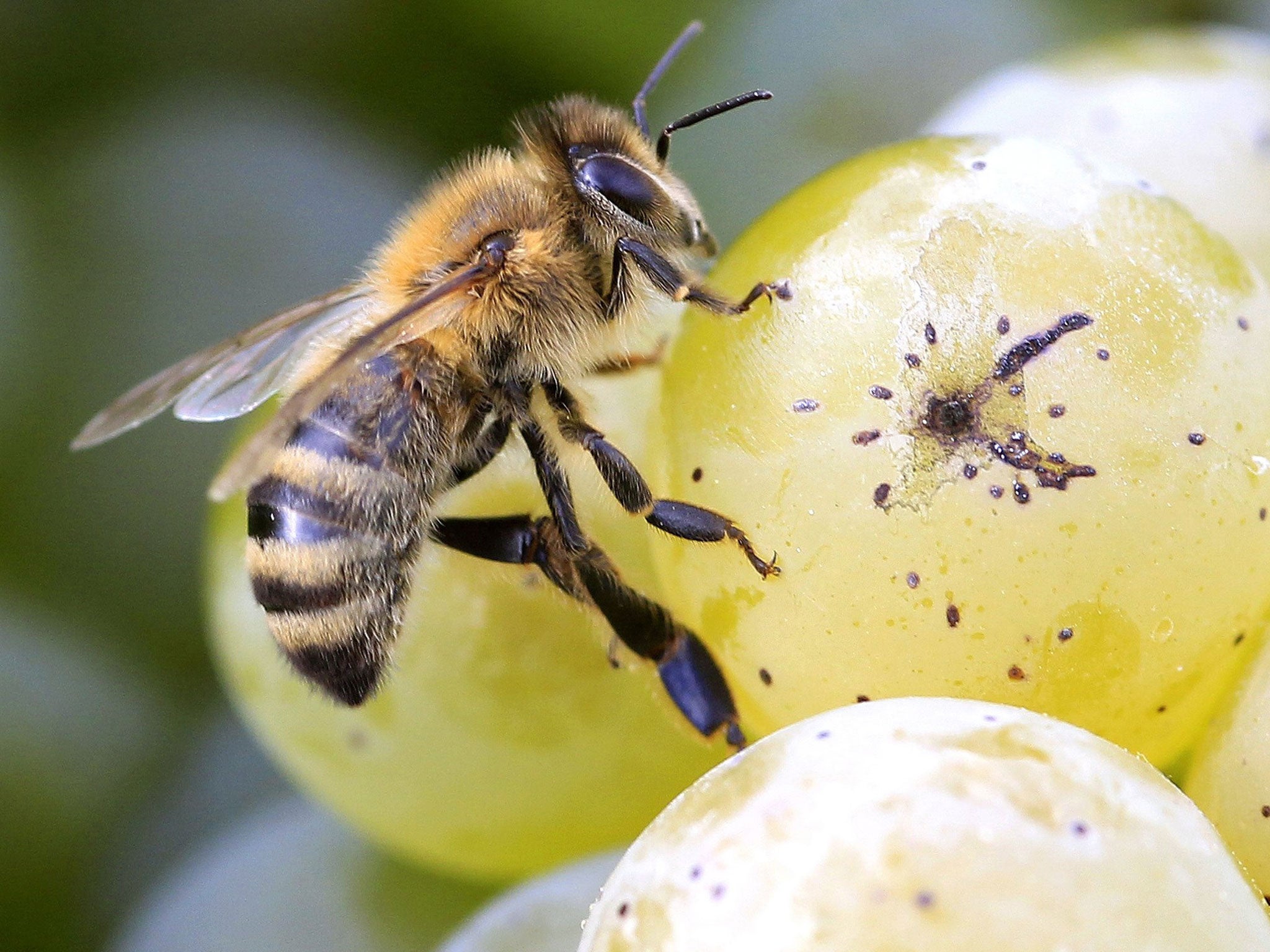MPs call for ban on 'nerve agent' neonicotinoid pesticides to protect dwindling bee population

Your support helps us to tell the story
From reproductive rights to climate change to Big Tech, The Independent is on the ground when the story is developing. Whether it's investigating the financials of Elon Musk's pro-Trump PAC or producing our latest documentary, 'The A Word', which shines a light on the American women fighting for reproductive rights, we know how important it is to parse out the facts from the messaging.
At such a critical moment in US history, we need reporters on the ground. Your donation allows us to keep sending journalists to speak to both sides of the story.
The Independent is trusted by Americans across the entire political spectrum. And unlike many other quality news outlets, we choose not to lock Americans out of our reporting and analysis with paywalls. We believe quality journalism should be available to everyone, paid for by those who can afford it.
Your support makes all the difference.“Nerve agent” pesticides should be banned until science has established whether they are to blame for the rate at which bumblebees and other insects are vanishing from the countryside, a committee of MPs has urged.
The All Party Environmental Audit Committee has called for a precautionary moratorium that would prevent three types of neonicotinoid pesticide from being used on the plants that attract bees while they are in flower.
The Government has opposed any pesticide ban despite pressure from the EU. This week the chief scientific adviser at the Department of Environment, Professor Ian Boyd, conceded that the issue is “finely balanced” although the government is not convinced that a ban is required.
The report, published today, acknowledges that no-one knows the exact reason why two-thirds of the insects that pollinate plants, such as bumblebees, hoverflies, butterflies, carrion flies, beetles, midges and moths, are disappearing. Possible causes include climate change, disease and loss of habitat, but there is also a body of research which points the finger at toxic pesticides. The findings are disputed by chemical firms, who have produced their own findings, though they have not allowed independent scutiny of these, claiming that it is commercially sensitive.
France, Germany, Italy and Slovenia have suspended the use of some neonicotinoids in specified circumstances, and the European Commission has proposed an EU-wide moratorium on imidacloprid, clothianidin and TMX, the three neonicotinoids singled out in the committee report.
Several DIY and garden stores, including B&Q, Wickes and Homebase, have stopped selling products to amateur gardeners that contain neonicotinoids. The report says that selling neonicotinoids for public domestic use should be banned outright.
Joan Walley, the Labour MP who chairs the Environmental Audit Committee, said it would cost farmers millions of pounds to do the job that pollinating insects do for nothing. “We believe that the weight of scientific evidence now warrants precautionary action, so we are calling for a moratorium on pesticides linked to bee decline to be introduced by 1 January next year,” she said.
But Sytngenta, the company that produces TMX, said in a written statement: “Although governments, reputable universities and experts across Europe share the view that these innovative pesticides are safe, there are a small number of vocal individuals and groups who continue to suggest the opposite by focusing only on the intrinsic hazard of these products.”
Join our commenting forum
Join thought-provoking conversations, follow other Independent readers and see their replies
Comments